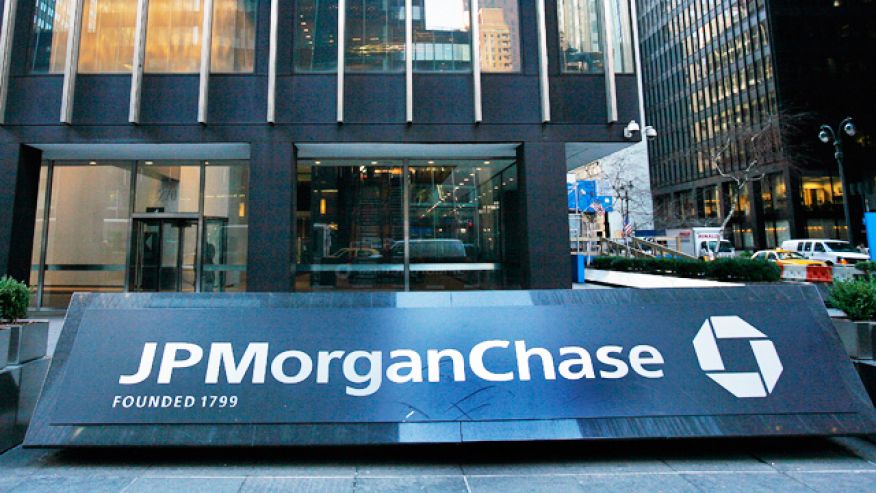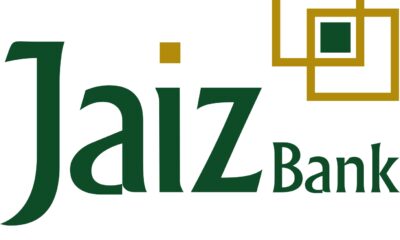JPMorgan Chase & Co. will pay more than $300 million to settle U.S. allegations that it didn’t properly inform clients about what the Securities and Exchange Commission called numerous conflicts of interest in how it managed customers’ money over a half decade.
The largest U.S. bank by assets failed to tell customers that it reaped profits by putting their money into mutual funds and hedge funds that generated fees for the company, the SEC said in announcing $267 million in penalties and disgorgement against JPMorgan. The bank agreed to pay $40 million more as part of a parallel action by the Commodity Futures Trading Commission.
JPMorgan admitted disclosure failures from 2008 to 2013 related to two units that manage money — its securities subsidiary and its nationally chartered bank — as part of the SEC settlement. The New York-based bank said that the omissions in its communications were unintentional and that it has since enhanced its disclosures.
“Firms have an obligation to communicate all conflicts so a client can fairly judge the investment advice they are receiving,” Andrew J. Ceresney, director of the SEC Enforcement Division, said in a statement. “These JPMorgan subsidiaries failed to disclose that they preferred to invest client money in firm-managed mutual funds and hedge funds, and clients were denied all the facts to determine why investment decisions were being made by their investment advisers.”
Two-Year Probe
The settlement caps roughly two years of investigations during which the government deposed asset-management executives and issued subpoenas for internal documents. The SEC’s enforcement division had been looking into whether the bank encouraged their financial advisers to steer clients improperly into investments that generated fees for the bank, people familiar with the investigation said earlier this year.
In its order, the SEC said the bank cooperated with commission staff, hired an independent compliance consultant and carried out its recommendations.
The disclosure weaknesses cited in the settlements “were not intentional and we regret them,” said Darin Oduyoye, a JPMorgan spokesman. “We have always strived for full transparency in client communications, and in the last two years have further enhanced our disclosures in support of that goal.”
Record Penalty
While the agency extracted a record penalty for an asset manager, JPMorgan can continue operating as it has been in one of its most profitable businesses. The $307 million in fines and disgorgement accounts for a bit more than 1 percent of the company’s annual operating profits, or about a month of those at its asset-management division.
The settlement, announced on the Friday before Christmas, didn’t go far enough, said Dennis Kelleher, a lawyer who runs Better Markets, a consumer advocacy group.
“The conduct involves steering clients into proprietary products so brokers get higher commissions and JPMorgan gets good asset-management numbers,” said Kelleher, who said the practices remain costly for customers, additional disclosures notwithstanding. “This wasn’t a rogue trader. It wasn’t an individual employee. It’s not a mistake. It’s a five-year pattern.”
‘Exhausting Process’
With the settlement, the bank moves beyond one of its last major regulatory challenges since the 2008 financial crisis. JPMorgan has been penalized more than $23 billion in major settlements with U.S. authorities in recent years, in connection with allegations that included conspiring to manipulate foreign-currency rates, allowing the “London Whale” trader to exceed risk limits, failing to flag transactions related to Bernard Madoff’s Ponzi scheme and misrepresenting the value of mortgage-backed securities.
“Investors are glad that the bank agreed to a settlement to move forward and this isn’t an overhang for the business anymore,” said Pri de Silva, a senior banking analyst at CreditSights Inc. in New York. “We are at the tail-end of the post-crisis litigation actions, but its been an expensive, exhausting process. I think both banks and the investor base are tired of it.”
JPMorgan shares fell 2.8 percent to $64.40 at 4:15 p.m. amid a broad decline in financial shares. The bank has climbed 2.9 percent this year, outperforming the 2.3 percent decline of the KBW Bank Index.
Expanded Operation
The SEC’s inquiries looked into JPMorgan Asset Management, a unit that grew rapidly after the 2008 financial crisis, as new regulations crimped areas including hedge-fund and proprietary trading operations that have traditionally been lucrative for Wall Street firms. The bank expanded an operation that pairs wealth management and investment funds in one reporting structure, run by Mary Erdoes, seen as one of a half-dozen in-house favorites to eventually replace Chief Executive Officer Jamie Dimon.
JPMorgan expanded its in-house mutual funds even as many competitors pulled back. Over the past decade, Morgan Stanley, Citigroup Inc. and Bank of America Corp. have shed such fund businesses after being fined for allowing conflicts of interest to result in sales abuses.
JPMorgan Asset Management — with mutual funds, alternative investments, private wealth management and some trust operations — had the highest rate of revenue growth among the bank’s four main operating units. It also had the highest percentage growth in asset inflows of any large manager in the five years through 2014, ending the year with $1.7 trillion under management, according to a February presentation to investors.
Cross-selling and synergies between units was worth $14 billion across the bank in 2012, it said in a February 2013 presentation to investors. The bank attributed $1.1 billion of that to the synergies of selling the bank’s investment-management products to private banking clients.
‘Numerous Conflicts’
JPMorgan “failed to disclose numerous conflicts of interest to certain wealth management clients,” the SEC said in its announcement. That included not telling customers of a retail product, Chase Strategic Portfolio, that it was designed to favor in-house mutual funds, or that the bank might put them into a higher-fee fund when a lower-fee version of the same fund was available. The bank’s investment advisory business, J.P. Morgan Securities LLC, also failed to disclose that it had a financial incentive to favor the bank’s funds because it received a discount on them from another JPMorgan unit, the SEC said.
At one point in early 2011, JPMorgan invested 47 percent of mutual-fund assets and 35 percent of hedge-fund assets in products and accounts that had ties to it, according to the SEC order.
‘Retrocession Payments’
JPMorgan Chase Bank failed to disclose its preference for third-party funds that shared revenue with the bank, the SEC said. During initial meetings, third-party managers were typically asked if they were willing to share their fees. If they declined, JPMorgan typically would look for an alternative manager who was willing. The bank began disclosing that it may receive these “retrocession” payments in August 2015, the SEC said.
JPMorgan agreed to pay a $40 million civil penalty to the CFTC, which also cited $60 million in disgorgement that was part of the SEC settlement.
The bank’s settlement with the SEC included a penalty component of $127 million. That surpassed the agency’s previous record of $100 million, levied on Alliance Capital Management 11 years ago, according to an SEC spokeswoman.
SEC Waiver
As part of the settlement, JPMorgan received permission to continue raising money for private companies including hedge funds and startups. The bank could have been barred from that lucrative activity based on investor protections that automatically disqualify firms found to have violated securities laws. That so-called waiver came with a condition that JPMorgan hire an independent consultant to annually certify its plan for complying with rules for private fundraising.
A senior bank executive or legal officer will have to certify in writing that they reviewed the consultant’s report. The SEC can revoke the waiver if JPMorgan is found to have repeated the kind of wrongdoing that triggered the latest SEC enforcement action.
“J.P. Morgan put its interest before its clients by failing to disclose significant conflicts of interest,” said Democratic Commissioner Kara Stein, who supported the added waiver restrictions. “These failures were part of an institutional breakdown that operated as a fraud on both its clients and its prospective clients.”
Bloomberg

 Billionaire Watch3 weeks ago
Billionaire Watch3 weeks ago
 Startups4 weeks ago
Startups4 weeks ago
 News4 weeks ago
News4 weeks ago
 News4 weeks ago
News4 weeks ago
 Bitcoin4 weeks ago
Bitcoin4 weeks ago
 Naira4 weeks ago
Naira4 weeks ago
 Forex3 weeks ago
Forex3 weeks ago
 Treasury Bills4 weeks ago
Treasury Bills4 weeks ago

























